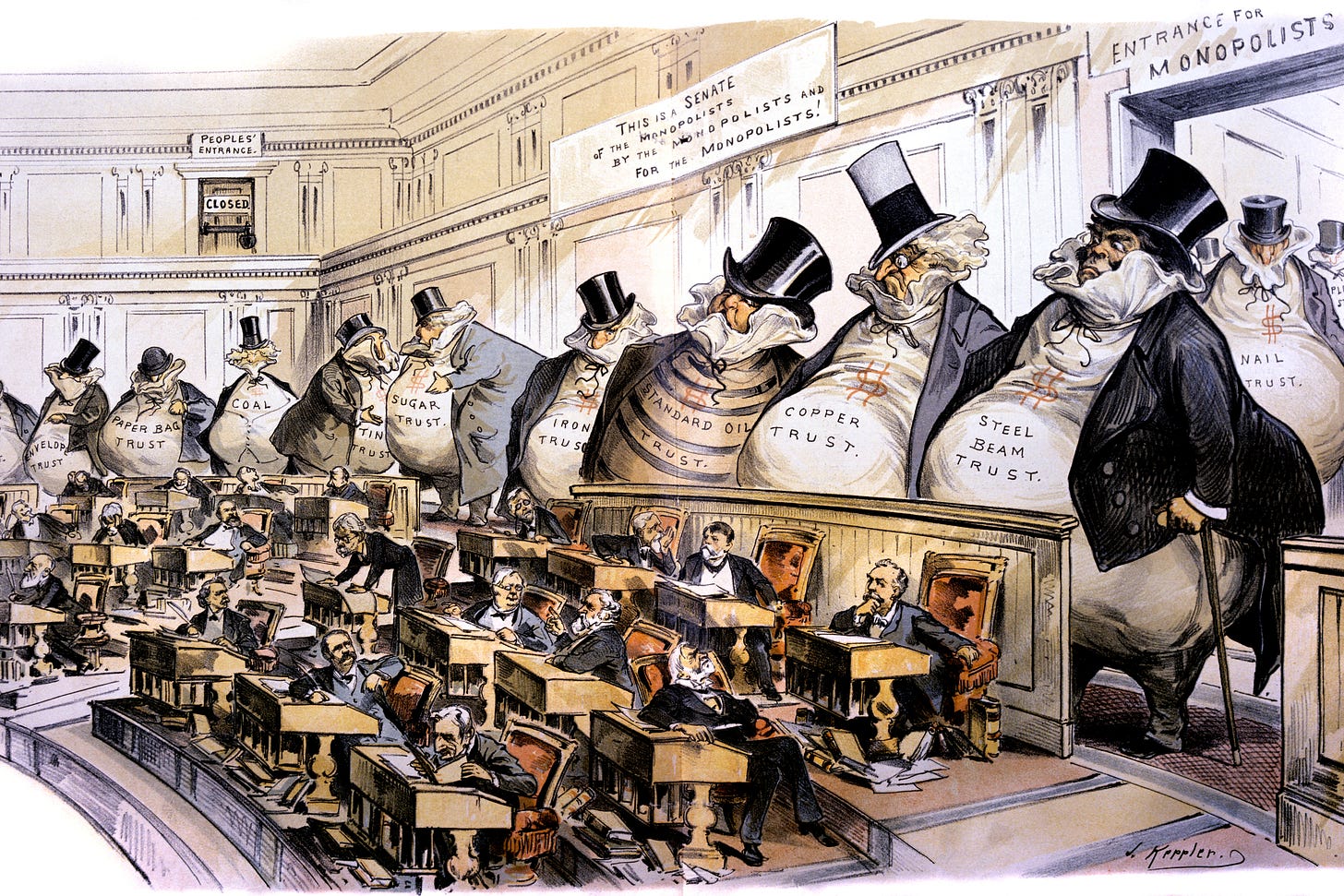Introduction
Some key concepts in competition law

Jumia and Konga are competing online marketplaces. Airtel and MTN compete in the telecommunications market. We intuitively understand the concept of competition, and that companies compete with each other. But what exactly is competition law? Or antitrust, if you’re in the United States. If I got a dollar for every time I’ve been asked this question, I would become a problem for competition authorities.
However, I am not a problem for them (at least I hope not). In fact, I aim to assist them by attempting to articulate what competition law is for an audience that has little-to-no clue. That said, though, answering and doing justice to such a broad question is difficult. For starters, 1000 page books have been written about competition law. Given the constraint of your attention (and probably mine), I am only going to provide a very high level overview of some key concepts. Also, there is plenty of debate within the competition law community. So, it is probably safe to assume that every single sentence in this post has been, is being, or will be disputed by some academic paper at some point. But that, to me, is what makes this area fascinating.
With those caveats, let us begin our journey to discover what competition law is.
First, we must start with some theory: why is competition important? Put simply, competition leads to lower prices, better quality products, more innovation, increased choice for consumers, and all these can be summed up as improvements in consumer welfare. If companies fear losing customers to competitors, they will be more incentivised to improve consumer welfare. In the absence of competition, companies face little-to-no repercussions for acting contrary to consumer welfare. For instance, a lack of competition (among other reasons) explains why Facebook can degrade consumer privacy without a fear of losing users. It also partly explains why the price of cement in Nigeria is 240% higher than the global average.
Put another way, imperfect competition is a market failure—this is where free market forces fail to produce outcomes that are in the best interests of society-at-large.1 In other words, market failures are when capitalism goes wrong and, when markets fail, regulatory intervention is justified to correct them. With imperfect competition, market power has become unconstrained by competitive forces. And so, competition regulation aims to correct this by promoting and protecting competitive pressure on market power. All to create an efficient market that works for consumers.
Now we know why competition is important, we can return to our initial question: what is competition law? Competition law is a legal regime that prevents imperfect competition from harming consumers. The key word here is harm: Every competition intervention must be founded on a theory of harm—which substantiates why the relevant business practice, conduct, or agreement is harmful to consumers. Harm to consumers can be direct (such as, raising prices), or indirect, by harming ‘as-efficient’ competitors, thereby removing or reducing competition in the market (for example, see, predatory pricing).2
Broadly speaking, competition intervention splits into three main areas.
First, abuse of dominance. Dominant players have a special status in competition law. The rationale for this is (rather surprisingly) found in the Peter Parker principle: “With great power comes great responsibility,” (yes, I am an unapologetic Spiderman fan). While it is not illegal to be dominant, with dominance comes the ability to behave independently (i.e., without regard to consumers or competitors) in a way that smaller players cannot. Their conduct and business practices can have an outsized impact on a market, in a way that is unavailable to a small player.
Second, anti-competitive agreements. You have probably heard of cartels, collusion, and price fixing. Well, these are examples of anti-competitive agreements. In other words, they reduce or otherwise soften competition between competing companies, to the disadvantage of consumers (or other competitors). Adam Smith, otherwise known as the Father of Capitalism, once said: “People of the same trade seldom meet together, even for merriment and diversion, but the conversation ends in a conspiracy against the public, or in some contrivance to raise prices.”
Third, merger control. Imagine if Shoprite and Spar wanted to merge. If this happened, the merged entity would be able to raise prices on many products, knowing consumers have less choice (this is why the UK competition authority blocked the Sainsbury’s and Asda merger). Or the merged entity could be in a dominant position and force its suppliers to enter into unfair contracts (this happened recently with Carrefour in Kenya—more on this later). Or the merged entity might find it easier to collude with other players in the sector. All these would be bad for consumers, and therefore, a competition authority would likely block the merger. Put simply, merger control aims to prevent business combinations which are likely to lessen or prevent competition.
Competition authorities can prevent abuses of dominance, anti-competitive agreements, and review mergers in every sector of the economy. And this is why they are often referred to as the regulator of regulators. All they need to intervene is that there has been, is, or could be, harm to consumers caused by imperfect competition.
Ok, that’s a good place to stop. I hope you now have a better understanding of what competition law is and why it is important. Going forward, you can expect to see us apply these foundational concepts and ideas in different contexts.
Before you go…
…here are some recent developments in the world of competition law:
Labour markets: Last month, in NCAA v. Alston, the US Supreme Court ruled that limits placed on the remuneration of college athletes amounted to an unlawful restraint on trade, and a violation of the Sherman Antitrust Act. Very interesting development, and a sign of increased competition law enforcement in labour markets, which have typically been ignored by competition law.
Tech acquisitions: A new proposal could mean that the UK’s competition authority can block acquisitions by firms with “Strategic Market Status,” which have a “realistic prospect” of reducing competition. And this includes where harm is less than 50% likely. It is an attempt to curb Big Tech market power, but I don’t think reducing the burden is the right approach. Instead of making the goalposts larger, a better approach might be to upgrade the analytical tools used by the authority to detect harm. I recently read a paper about ‘Computational Antitrust’ which could be useful here.
Google busted: The French competition authority recently fined Google €220 million for abusing its dominant position in the online advertising business. And there are at least four reasons why this decision is important: (i) it goes to the core of Google’s money-making advertising business; (ii) Google did not contest the authority’s findings; (iii) Google has agreed to significant structural remedies; and (iv) it provides a template for other authorities to intervene (which has already begun). For us, the question is: Is Google also harming players in the African online advertising space?
Another market failure is where buyers or sellers have insufficient information (‘information asymmetry’) or when the costs of an activity are not included in the price paid, such as the cost of pollution from flying (‘negative externalities’). For more information, check out this video by Mariana Mazzucato from 10 minutes and 15 seconds in.
Amazon have frequently been accused of engaging in predatory pricing to remove their smaller rivals. In this video, American comedian, Hasan Minhaj, discusses this strategy from 10 minutes and 39 seconds in. Antitrust laced with humour; what could be better?



Hmmm. Never had a more indepth and adapted read on this subject before this.
Kudos learned friend. Keep them coming.
Indepth exploration into the pricint of competition law. But is appears no attempt was made to define " competition law " as posited, save for explanation on the what appears to be the essence or the importance of competition law. So far, is a masterpiece and unputdownable ....